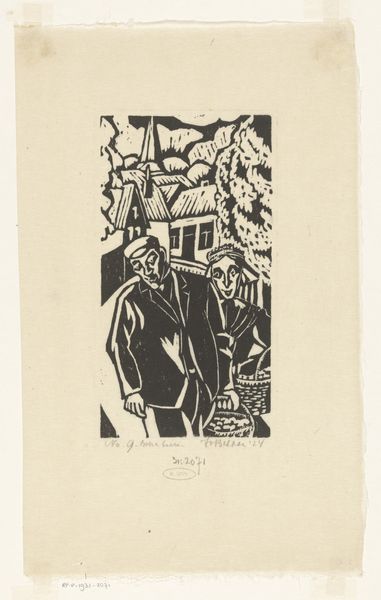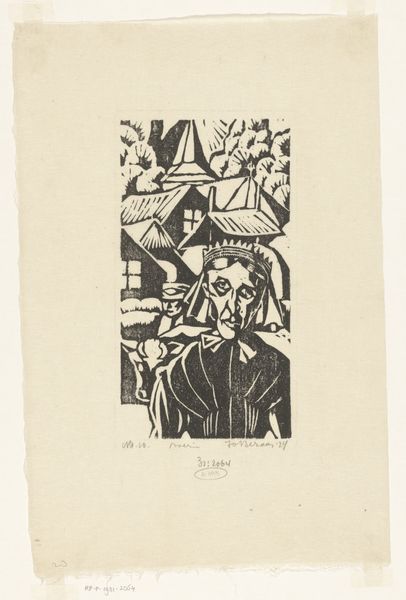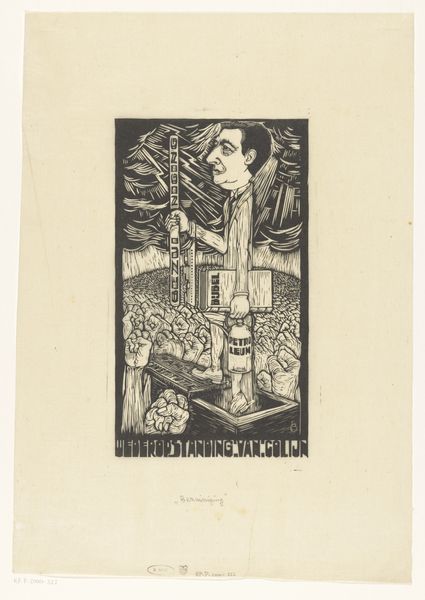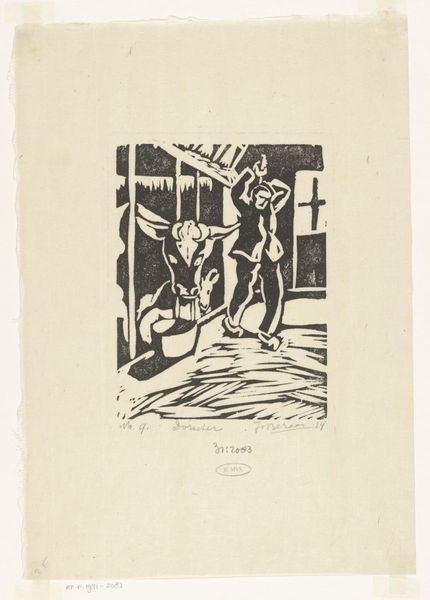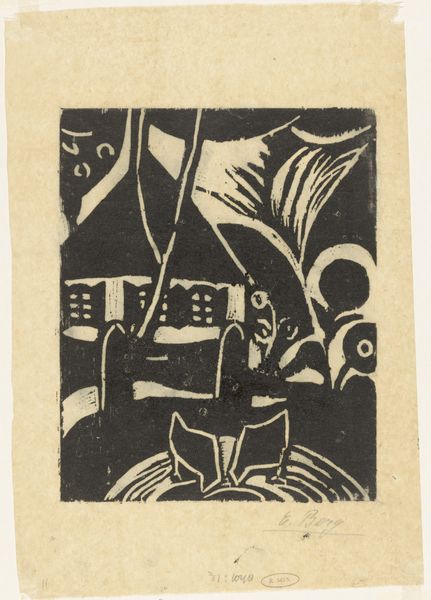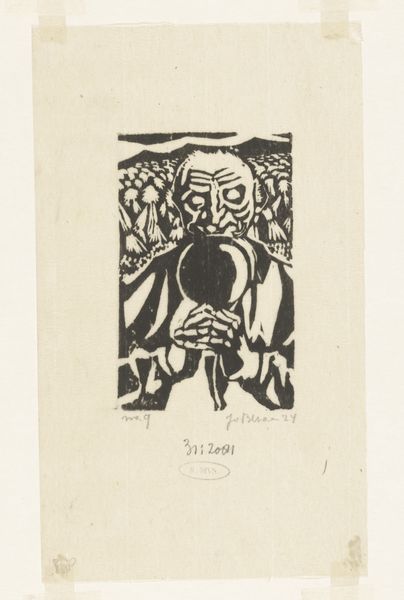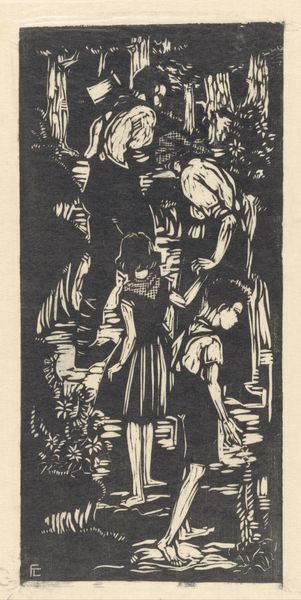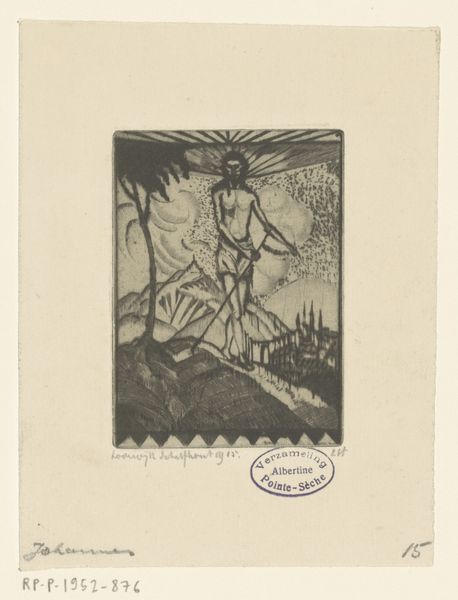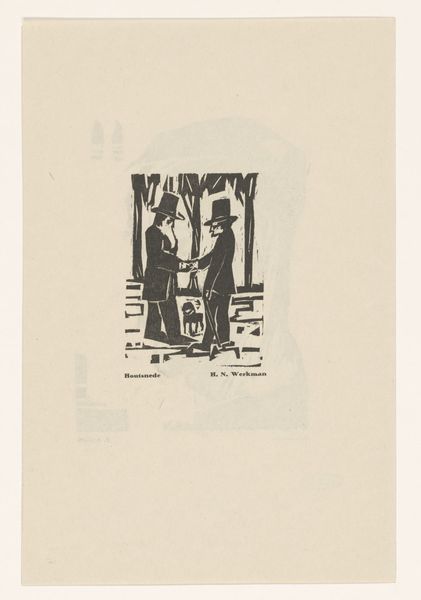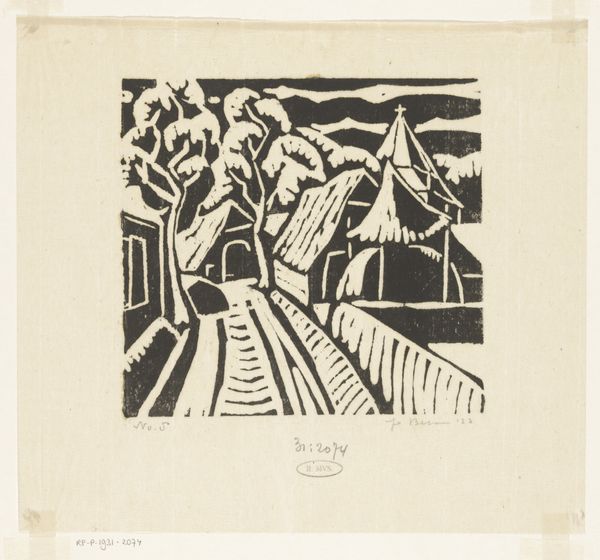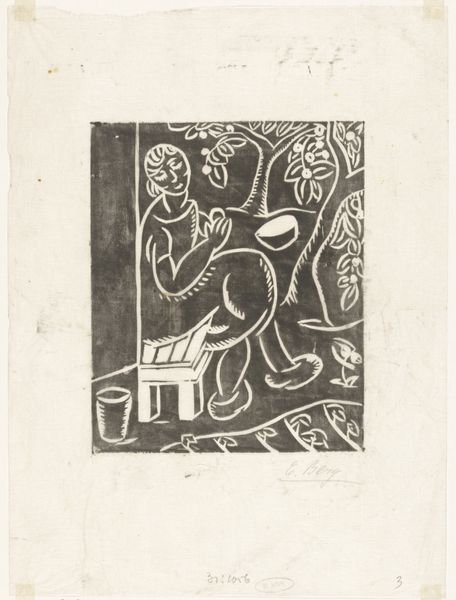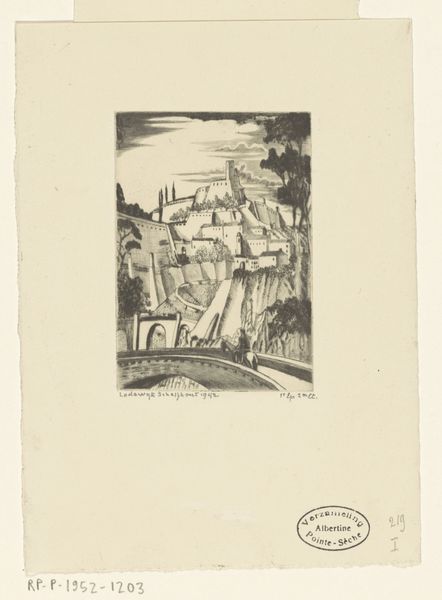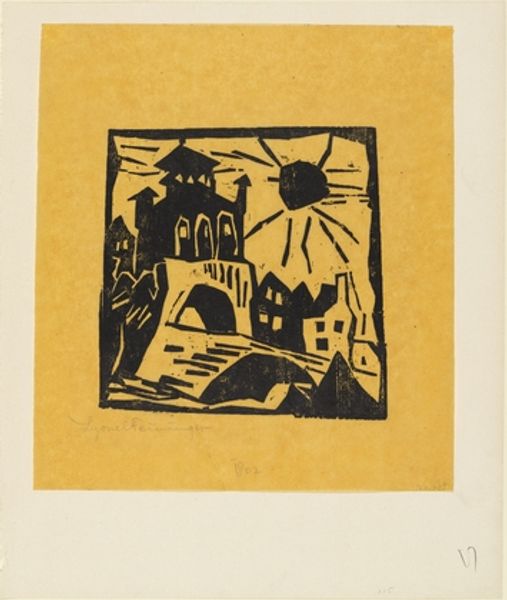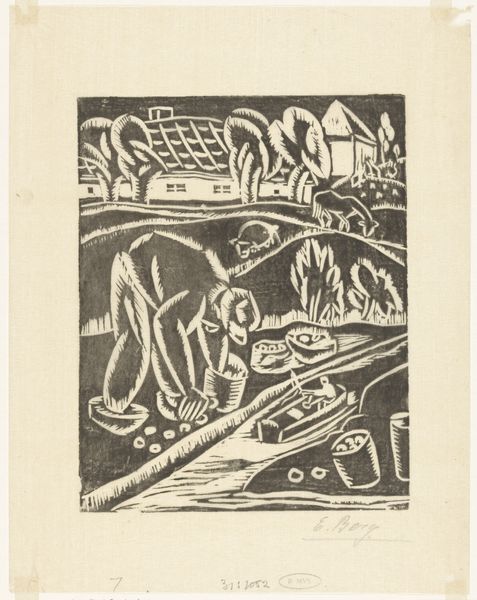
drawing, print, woodcut
#
drawing
# print
#
old engraving style
#
landscape
#
figuration
#
ink drawing experimentation
#
pen-ink sketch
#
expressionism
#
woodcut
Dimensions: height 118 mm, width 93 mm, height 204 mm, width 140 mm
Copyright: Rijks Museum: Open Domain
Jo Bezaan made this woodcut titled 'Man en vrouw in dorpsstraat' - or 'Man and woman in village street' - around 1922. The graphic style, with its stark contrasts and simplified forms, situates Bezaan within the artistic currents of the early 20th century. Created in the Netherlands, this work reflects the rise of expressionism. Artists sought to convey subjective emotions through bold stylistic choices. Consider how the village street, typically a scene of everyday life, is here transformed into a stage for human interaction. The artist draws attention to the figures and how they relate to each other. As art historians, we delve into the archives, newspapers, and exhibition catalogues of the time to better understand the society in which the artist worked. This helps us understand the dialogue between the artwork and the world around it. The meaning of art is not fixed. It evolves as society changes.
Comments
No comments
Be the first to comment and join the conversation on the ultimate creative platform.
